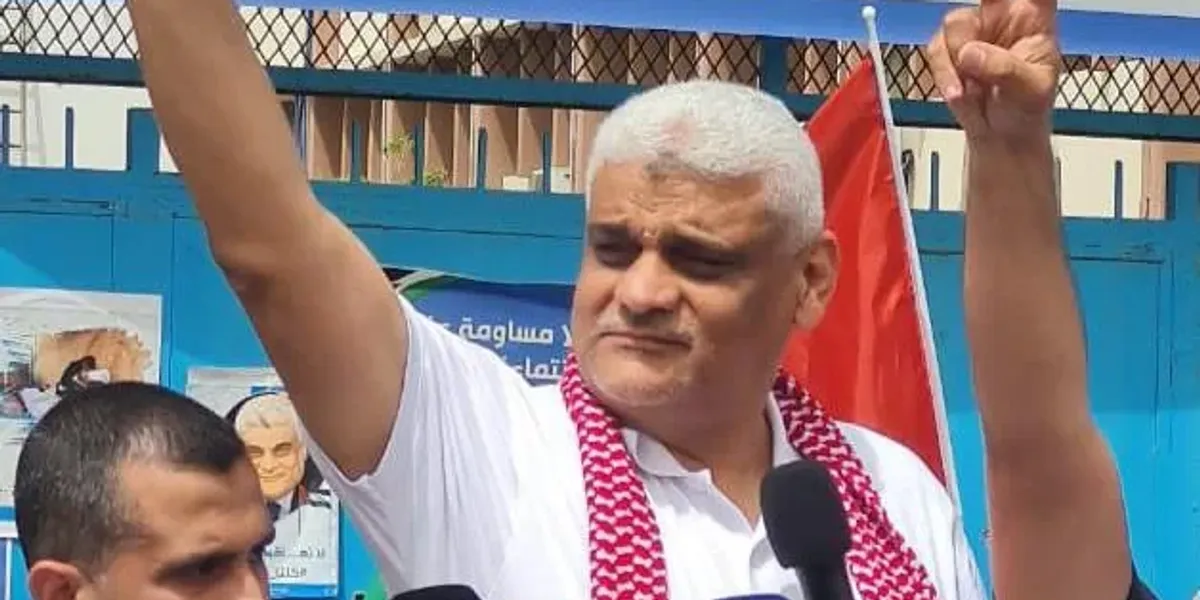The Complex Legacy of Fateh Sharif: A Hamas Leader’s Dual Life in Lebanon
The recent assassination of Fateh Sharif, a prominent Hamas leader in Lebanon, has sent shockwaves through the region and raised significant questions about the intersection of humanitarian work and militant activities. Sharif was killed in an Israeli airstrike last Monday, alongside his wife and two children, in a Palestinian refugee camp in Tyre. His death not only highlights the ongoing conflict in the region but also sheds light on the controversial role of the United Nations Relief and Works Agency (UNRWA) in the Israeli-Palestinian conflict.
A Covert Life as a Teacher
Fateh Sharif was not just a leader of Hamas; he was also employed as a teacher for UNRWA, the agency responsible for providing assistance to Palestinian refugees. This duality in his life raises critical ethical questions about the agency’s oversight and the potential infiltration of militant ideologies within its ranks. In March, UNRWA suspended Sharif without pay while investigating allegations of his involvement in activities that violated the agency’s rules governing staff behavior. This suspension sparked protests outside UNRWA’s offices in Beirut, with campaigners demanding the reversal of the decision.
The Role of Fateh Sharif in Regional Politics
Israeli military officials have indicated that Sharif played a crucial role in managing communications between Hamas and Hezbollah, the Lebanese militant group. His involvement in facilitating these connections underscores the complex web of alliances and enmities that characterize the Middle East. The assassination of Sharif coincided with Israel’s broader military operations, which included airstrikes targeting key figures in other militant organizations, such as the Popular Front for the Liberation of Palestine (PFLP).
The Aftermath of the Airstrike
The airstrike that killed Sharif marked a significant escalation in Israel’s military campaign, which has seen increased activity in Lebanon. Hamas condemned the attack as a "terrorist and criminal assassination," framing it as part of a broader pattern of violence against Palestinian leaders. The implications of Sharif’s death extend beyond immediate military concerns; they also raise questions about the future of Hamas’s operations in Lebanon and the potential for increased tensions between Israel and Hezbollah.
UNRWA Under Scrutiny
The revelation of Sharif’s employment with UNRWA is likely to intensify scrutiny of the agency, which has already faced criticism for alleged ties between its staff and militant groups. Following the October 7 Hamas-led attack, Israel accused 12 UNRWA employees in Gaza of participating in the violence, leading to funding suspensions from several international donors, including the UK. Although most donors have since resumed funding, the United States remains a notable exception.
UNRWA has acknowledged the potential connections between some of its staff and armed groups and is currently reviewing its safeguards to ensure neutrality. The agency has also reported that over 200 of its employees have been killed in Gaza since the onset of Israel’s military campaign last year, highlighting the dire humanitarian situation faced by Palestinian refugees.
Conclusion: A Tragic Intersection of Lives
Fateh Sharif’s life and death encapsulate the tragic complexities of the Israeli-Palestinian conflict. As a leader of Hamas and a teacher for UNRWA, he embodied the dual realities faced by many in the region—caught between the demands of militant politics and the need for humanitarian support. His assassination not only raises questions about the future of Hamas in Lebanon but also challenges the international community to reconsider its approach to humanitarian aid in conflict zones. As the situation continues to evolve, the legacy of Fateh Sharif will undoubtedly remain a focal point in discussions about the intersection of politics, violence, and humanitarianism in the Middle East.
